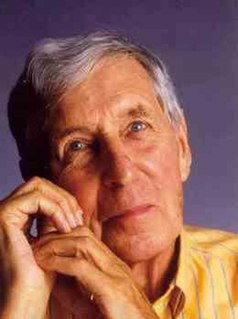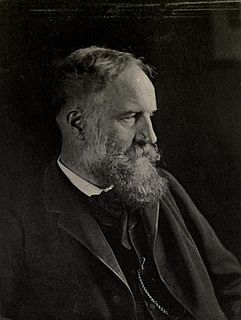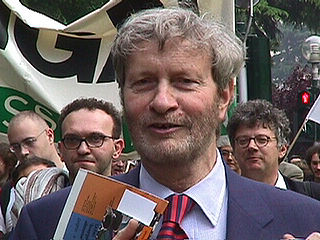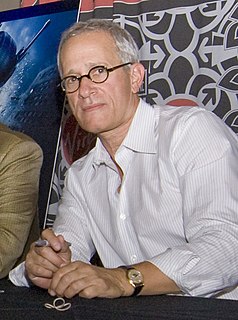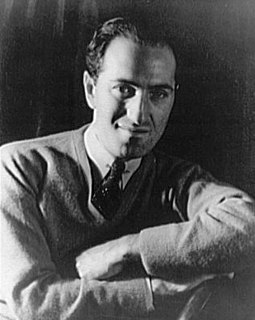A Quote by Michael Tippett
My true function within a society which embraces all of us is to continue an age-old tradition. This tradition is to create images from the depths of the imagination and to give them form, whether visual, intellectual or musical.
Related Quotes
Those who feel guilty contemplating "betraying" the tradition they love by acknowledging their disapproval of elements within it should reflect on the fact that the very tradition to which they are so loyal—the "eternal" tradition introduced to them in their youth—is in fact the evolved product of many adjustments firmly but delicately made by earlier lovers of the same tradition.
European society has always been divided into classes in a way that American society never has been. A European writer considers himself to be part of an old and honorable tradition--of intellectual activity, of letters--and his choice of a vocation does not cause him any uneasy wonder as to whether or not it will cost him all his friends. But this tradition does not exist in America.
In this same tradition, beauty is inextricably bound up with the principles of order and harmony believed to underlie the cosmos. Artists in the Classical tradition, inspired by Platonic idealism, strove to create images that represented not the world of particulars-with all its defects-but an ideal image conceived in the mind, which was taken as representing some absolute, pure, ideal form of which all particular, material forms are but a mere shadow.
I'm not an advocate of true rhymes, I don't think. I think that everyone who writes musical theater needs to know how to do true rhymes, because that's the tradition of it, but I do think that in order for the art form to grow, it's important to not let tradition get in the way of innovation. There's all kinds of reasons not to use true rhyme in a lyric, like with off-color humor.
The book [Saving Calvinism] argues in each case that the Reformed tradition is broader and deeper than we might think at first glance - not that there are people on the margins of the tradition saying crazy things we should pay attention to, but rather that there are resources within the "mainstream" so to speak, which give us reason to think that the tradition is nowhere near as doctrinally narrow as the so-called "Five Points of Calvinism" might lead one to believe.
The society to which we belong seems to be dying or is already dead. I don't mean to sound dramatic, but clearly the dark side is rising. Things could not have been more odd and frightening in the Middle Ages. But the tradition of artists will continue no matter what form the society takes. And this is another reason to write: people need us, to mirror for them and for each other without distortion-not to look around and say, 'Look at yourselves, you idiots!,' but to say, 'This is who we are.
Of all intellectual friendships, none are so beautiful as those which subsist between old and ripe men and their younger brethren in science or literature or art. It is, by these private friendships, even more than by public performance, that the tradition of sound thinking and great doing is perpetuated from age to age.
There is an intellectual function in us which demands unity, connection and intelligibility from any material, whether of perception or thought, that comes within its grasp; and if, as a result of special circumstances, it is unable to establish a true connection, it does not hesitate to fabricate a false one.
We may be thankful that frightened civil authorities ... have not managed to eradicate from the country the tradition of the possession and use of firearms, that profound and almost instinctive tradition of Americans. Luckily for us, our tradition of bearing arms has not gone from the country, the tradition is so deep and so dear to us that it is one of the most treasured parts of the Bill of Rights - the right of all Americans to bear arms, with the implication that they will know how to use them.
I haven't come across any recent new ideas in film that strike me as being particularly important and that have to do with form. I think that a preoccupation with originality of form is more or less a fruitless thing. A truly original person with a truly original mind will not be able to function in the old form and will simply do something different. Others had much better think of the form as being some sort of classical tradition and try to work within it.
Tradition is the transmitting of linguistic messages that constitute the horizon within which Dasein is thrown as a historically determined project: and tradition derives its importance from the fact that Being, as a horizon of disclosure in which things appear, can arise only as a trace of past words or as an announcement that has been handed down to us.
Modern European composers...have very largely received their stimulus, their rhythms and impulses from Machine Age America. They have a much older tradition of musical technique which has helped them put into musical terms a little more clearly the thoughts that originated here. They can express themselves more glibly.
The urge to break with a tradition is only appropriate when you're dealing with an outdated, troublesome tradition: I never really thought about that because I take the old-fashioned approach of equating tradition with value (which may be a failing). But whatever the case, positive tradition can also provoke opposition if it's too powerful, too overwhelming, too demanding. That would basically be about the human side of wanting to hold your own.
